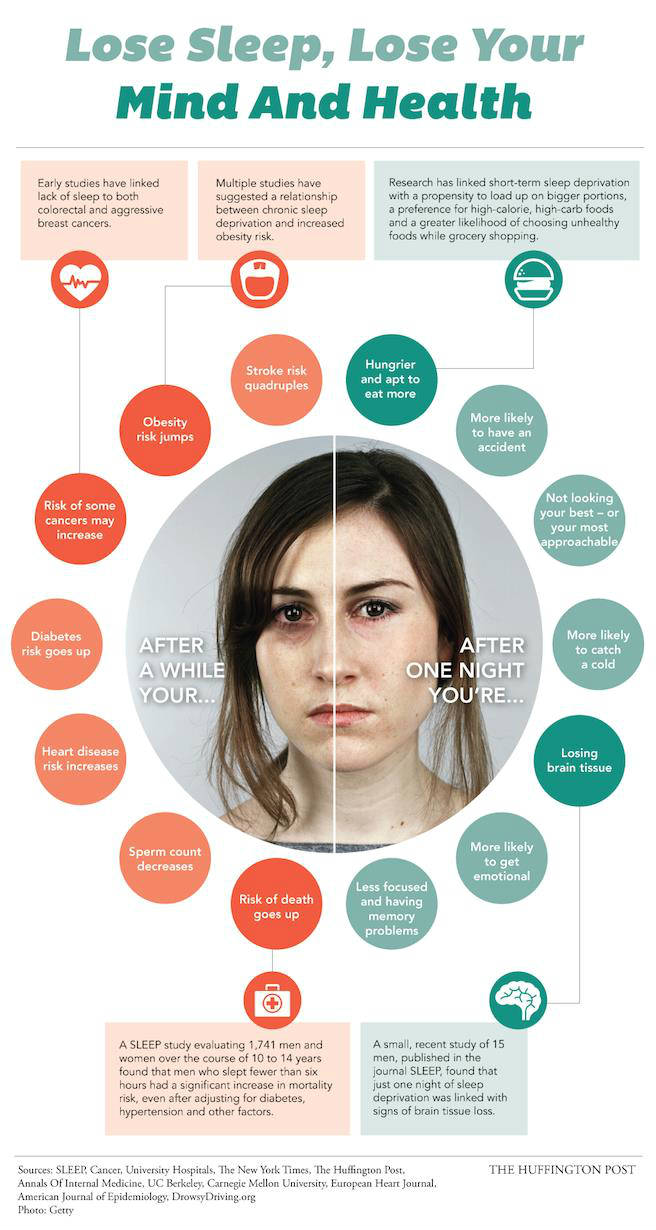It doesn’t matter why you miss going to bed on time – video games, surfing the web, reading books, watching TV… sooner or later you will notice the side effects of sleep deprivation. Partial and chronic sleep deprivation has an impact on your mood, but it also results in headaches, sleepiness, and inability to focus among other things.
Melatonin is a hormone that is produced by the pineal gland located in the brain and it is usually secreted around 9-10 pm. This hormone aids the balance of the circadian rhythm of our body and balances other hormones. For instance, it makes sure that the release of female reproductive hormones is done at the right time. What is interesting is that the level of production of melatonin is affected by the level of light – when it is dark the body creates more melatonin.
We are sure that you understand how important it is to learn how to enhance and protect the production of melatonin. On the other hand, many people are not aware of the effects of sleep deprivation. This is why we have created a list of ten harmful side effects of sleep deprivation.
1. Increased Anxiety Levels
The body uses the time when we sleep to repair the system and ease muscle tension that comes as a result of stress. In case we don’t sleep enough, the tension accumulates, and the following day, we have significantly increased stress levels. Our body and mind are connected directly and the tension we feel in the body will soon lead to negative thoughts and anxiety.
In addition, anxiety can be caused by chronic adrenaline production which is a frequent occurrence in people who lack sleep.
2. Higher Depression Levels
Sleep deprivation disrupts the work of neurotransmitters and if you don’t take any action, you will witness a decline in the signaling between neurons that are responsible for our mood.
3. Increased Chances of Strokes
Several scientific studies have confirmed that people dealing with chronic sleep deprivation are at the highest risk of experiencing a stroke. Insufficient sleep is harmful to cardiovascular health, leads to hypertension, and disrupts proper blood flow to the brain.
4. Weakened Cognition
Insufficient sleep has been related to the inability to focus during the daytime and the inability to shape memories. According to the popular SLEEP journal, only one night with a lack of sleep leads to the loss of a certain amount of brain tissue.
5. Increased Obesity Risk
As we have already mentioned, melatonin acts as a regulator of the production of many hormones including the ones that control the feeling of hunger and satiety – ghrelin and leptin. If we don’t get enough sleep, the levels of leptin decrease, and the levels of ghrelin increase which leaves room for fast weight gain, and if we don’t act fast the final result is obesity. Needless to say, insomniacs are not able to get involved in physical activities because they don’t have the energy and since they tend to stay awake they often eat because they are bored.
6. Increased Cancer Risk
Several scientific studies have found a connection between sleep deprivation and vicious colorectal and breast cancers. Those who can’t find enough time to sleep are suffering from low melatonin levels, a condition that can result in substandard inflammation which is one of the main reasons for developing almost every type of cancer.
7. Increased Diabetes Risk
Mark Mahowald, MD, claims that there is sufficient evidence that shows that lack of sleep could result in a pre-diabetic state. This practice hurts glucose metabolism and results in lowered insulin sensitivity and tolerance to glucose which can eventually lead to diabetes.
8. Increased Chances of Developing High Blood Pressure
If you sleep between 5 and 6 hours each night, you will likely experience high blood pressure over some time. Sleep balances the levels of stress hormones which directly affect blood pressure levels. In case you have chronic sleep deprivation the risk of developing high blood pressure is very high.
9. Negative Effects on the Immune System
Lack of sleep hurts the immune system making your body weaker and slowing down the response to bacterial and viral infections. Several studies have confirmed that the production of T-cells is decreased in case we lack sleep and these cells are crucial for the proper functioning of our immune system.
10. Increased Risk of Injuries
Sleep deprivation affects our judgments and perceptions. A scientific study shared by SLEEP journal which included more than 1700 women and men who followed their sleep routine for about 10 years has shown that men who didn’t have more than 6 hours of sleep at night had a greater mortality risk.
Via Live Love Fruit

